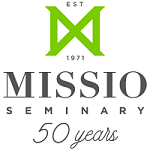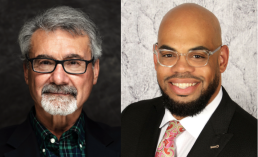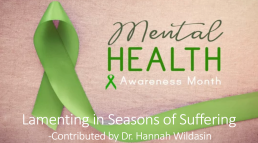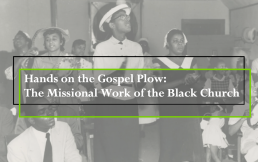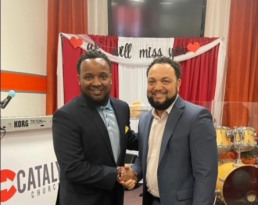Pre-Doctoral Program
Providing a Pathway for All Students
The Missio Pre-Doctoral Program provides a pathway for students who have achieved a master’s-level graduate degree in a non-theological area of study that will facilitate a Master of Divinity equivalency.
The program also provides a way for those who have not yet completed a graduate-level degree in theological study. Upon completion of the required courses a student may receive a Certificate in Ministerial Studies or achieve a Master of Arts degree depending on the prior level of study and the student’s particular circumstances.
All classes and programs are available on-line. The majority of our on-line classes are in a synchronous format. This means that you can engage with your professors and classmates from the comfort of your own home! For more information please contact our admissions department here
Requirements of the Program
Students who apply to the Doctor of Ministry program must have an MDiv or its equivalent from an accredited institution and three years of ministry experience subsequent to the first theological degree.
Students who are interested in the DMin program and who have a graduate degree but not a Master of Divinity degree may qualify for the Doctor of Ministry degree by completing a pre-doctoral course of study. MDiv equivalency is defined as broad-based work in theology, biblical studies, and the arts of ministry that includes a Master’s degree and significant ministerial leadership.
Professors push us to be critical about our theological assumptions and to work at understanding the Bible. Other strengths: Missional thrust, Christotelic hermeneutics, holistic counseling program, vision for urban ministry, robust integration of spiritual formation, etc. Maybe the most important note: I’ve found that each of the professors I’ve had make a huge effort to be accessible, to actively admit their flaws, and to be missional themselves beyond their seminary duties. Christ is at work in this institution.
– Jeremy Chen DMin Candidate, 2016
Curriculum within the Pre-Doctoral Program
Students with no graduate theological training will be required to take the following courses.
Required Theology Courses – 18 Credits
Reading the Old Testament Missionally
Reading the New Testament Missionally
Hermeneutics
Theology 1
Theology 2
Formation and Mission -OR- Leadership Development
Additional Possible Requirements
Students who need to make up more credits to reach the 72 hour minimum for equivalency may take elective courses based on their areas of need or anticipated concentration in the DMin program. The Academic Office and Student Advancement Office may also recommend courses based on student transcripts.
Students have the option to receive a Pre-doctoral Certificate in Ministerial Studies once they complete their pre-doctoral course requirements (minimum of 18 credits required).
Possible Scenarios:
Below are the possible scenarios that students may encounter when trying to complete the pre-doctoral program.
Master’s Degree and 36 Graduate Credits
- Reading the OT Missionally
- Reading the NT Missionally
- Authentic Biblical Interpretation
- Theology 1 and 2
- Formation and Mission
- Leadership Development
- World Christian History 1, 2, and 3
- Pentateuch Book Study
- Gospels Book Study
Master’s Degree and 48 Graduate Credits
- Reading the OT Missionally
- Reading the NT Missionally
- Authentic Biblical Interpretation
- Theology 1 and 2
- Formation and Mission
- Leadership Development
Exegeting the City
Master’s Degree and 54+ Graduate Credits
- Reading the OT Missionally
- Reading the NT Missionally
- Authentic Biblical Interpretation
- Theology 1 and 2
- Formation and Mission -OR- Leadership Development
Ready to start your journey?
Whether you are looking for more information regarding a program, scheduling a visit, starting the application process, or just wanting to talk to someone about your dreams, our admissions department is always available to assist you and answer any question that you might have.
What are professors saying?
Continue to Press: A letter from the Editor
A recording of Missio's 52nd Commencement is available here.
Lamenting in Seasons of Suffering
One helpful practice when walking through a season of suffering is writing a lament or a series of laments
Sunday’s Sermon
We share in the grief of friends and family who lost loved ones to the unspeakable violence in Buffalo
Hands on the Gospel Plow Webinar
Take an insightful journey with us as we delve into the missional history of the Black church moderated by Missio’s Assistant Professor of Practical Theology and Urban Initiatives, Dr. Clarence E. Wright.
Black History Month Video Message
As we celebrate Black History Month at Missio Seminary, President Frank James shares the impact Black missional leaders have had on him and his missional journey.
A Heartfelt Discussion with Sister Thelma White and Pastor Kevin Haynesworth
A Heartfelt Discussion with Sister Thelma White and Pastor Kevin Haynesworth
When Moderation and Justice Collide
Somehow justice, mercy, and humility belong together in a Christian social ethic. I think that is at least part of what MLK was telling us.
A Catalyst for Senior Pastoral Leadership
An excerpt on Senior Leadership from Pastor Keon Gerow and Dr. Sean Wise
Biblical Seminary Memories with Dr. Newman
As Missio continues celebrating 50 years of faithful ministry, Dr. Bob Newman shares stories of the BTS/Missio younger years.
